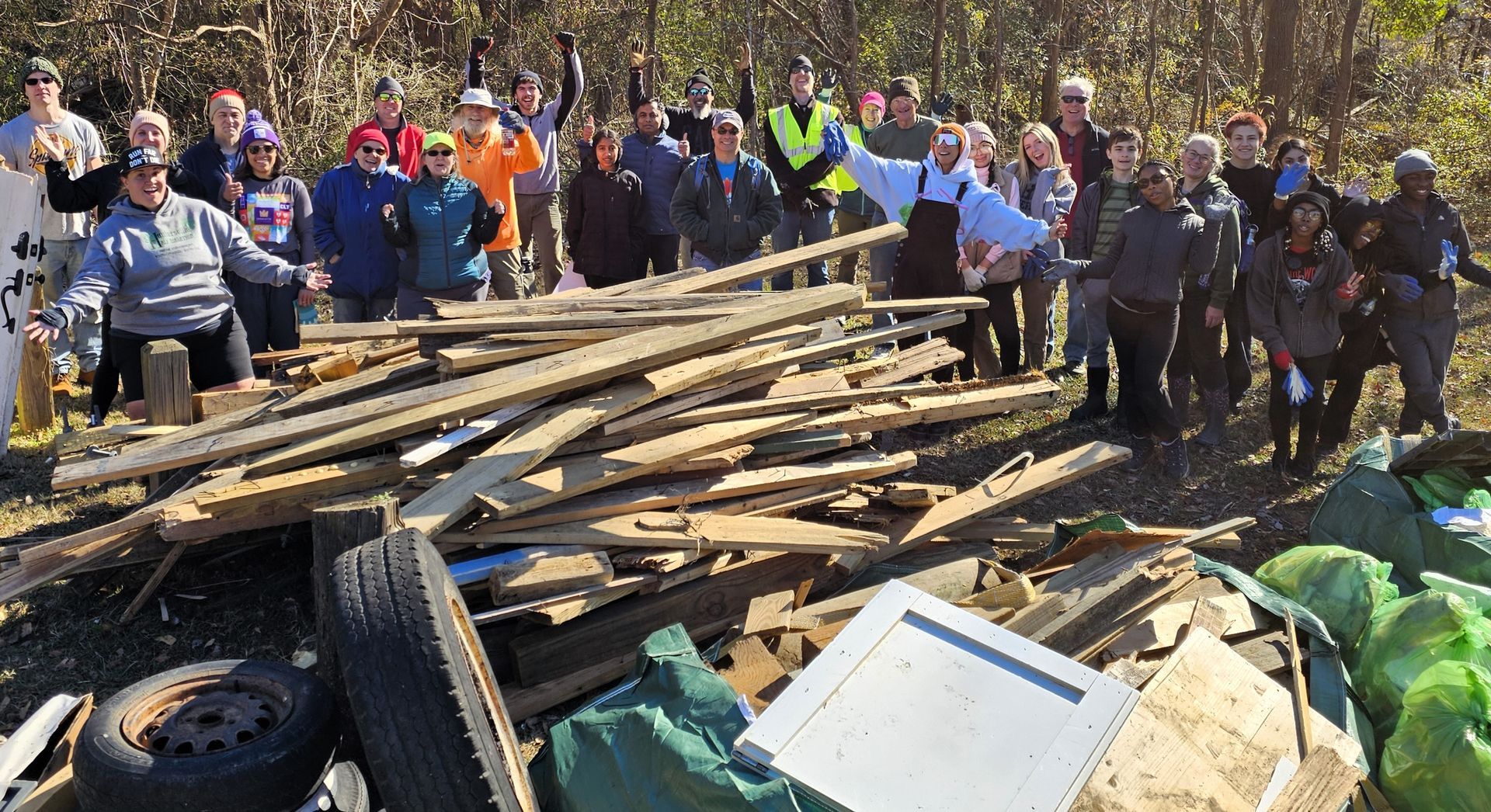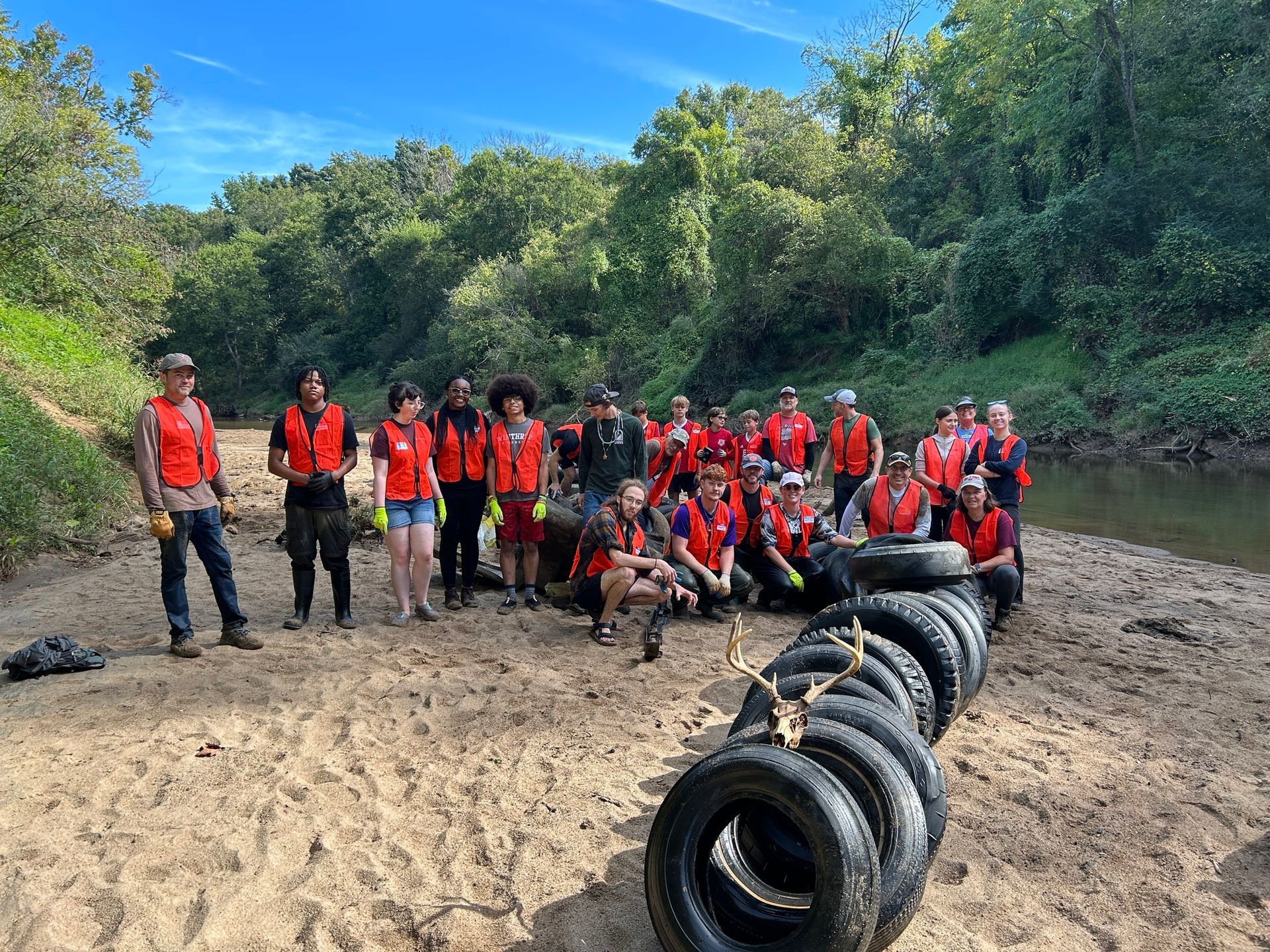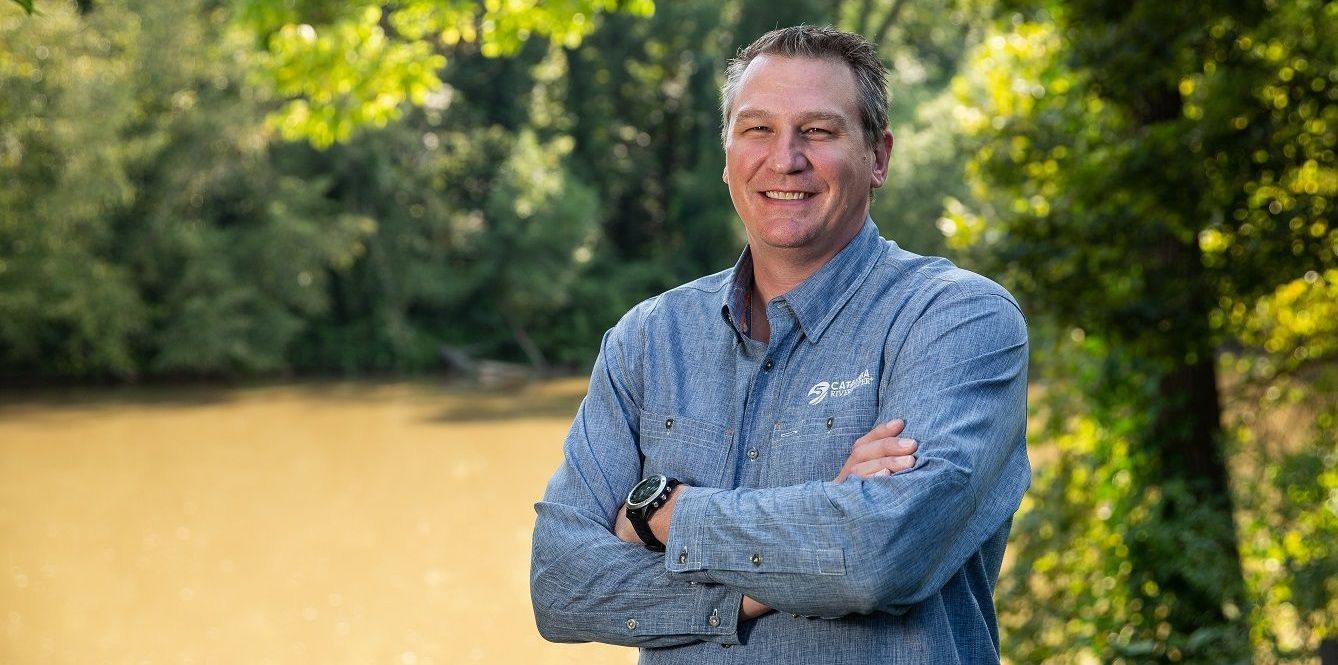Chimney Swift Tower Built at Outdoor Classroom
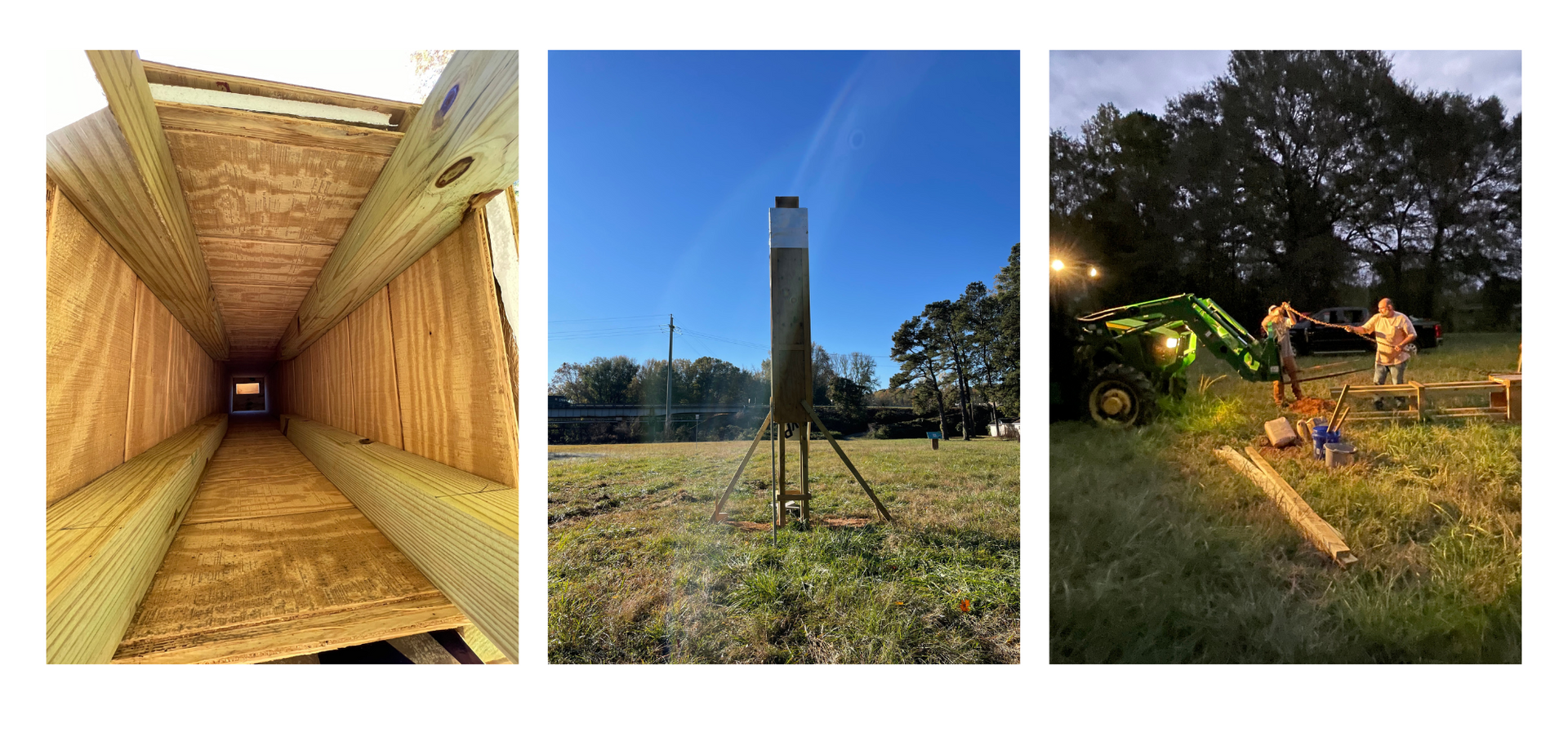
Chimney swift tower joins other shelters for birds to reside on campus
You may be wondering why there is now a new structure (pictured above), that looks like a stand-alone chimney, on our outdoor classroom campus? This is a chimney swift tower, a safe spot for the chimney swift bird to shelter! The chimney swift tower joins several other shelters on the outdoor classroom campus for birds and bats to reside.
Chimney swifts are small, quick birds that spend a lot of their time flying in the air. Due to deforestation, and the increase in buildings, these birds began living inside actual chimneys (which look and feel a lot like hollow trees). The chimney swift needs a habitat where they can cling to vertical walls, as they don't perch on tree branches and limbs. Chimney swift towers are dedicated homes for the bird to find shelter.
The swifts migrate between the eastern half of North America and the western half of South America. They eat many bugs that thrive in watery habitats, just like our Outdoor Classroom.
You can learn more about the chimney swift here: https://www.allaboutbirds.org/guide/Chimney_Swift/overview.
Building the chimney swift tour took a collaborative effort, and we are so thankful for those who helped to make it happen! Myers and Chapman volunteered their expertise and materials to construct the tower itself. The outdoor classroom’s own property maintenance volunteers, Larry and Butch, helped dig the post-holes, which is not an easy task to do by hand! Big thank you to Charlotte ToolBank for renting us the tools we needed to complete this project. Lifting up such a heavy, tall structure posed a challenge; our partners at Daniel Stowe Botanical Garden connected us with, Dixie Forestry and Grading, that had the equipment to get the job done safely. We are so very grateful for Jackie Bagley, Chad Fields, Lance Canty, and Connie Wade from Catawba Nation who contributed their time and talents to help put the metal flashing on top of the chimney swift and get the structure on its feet, even after the sun went down.
We hope to see birds enjoying their new home soon!
